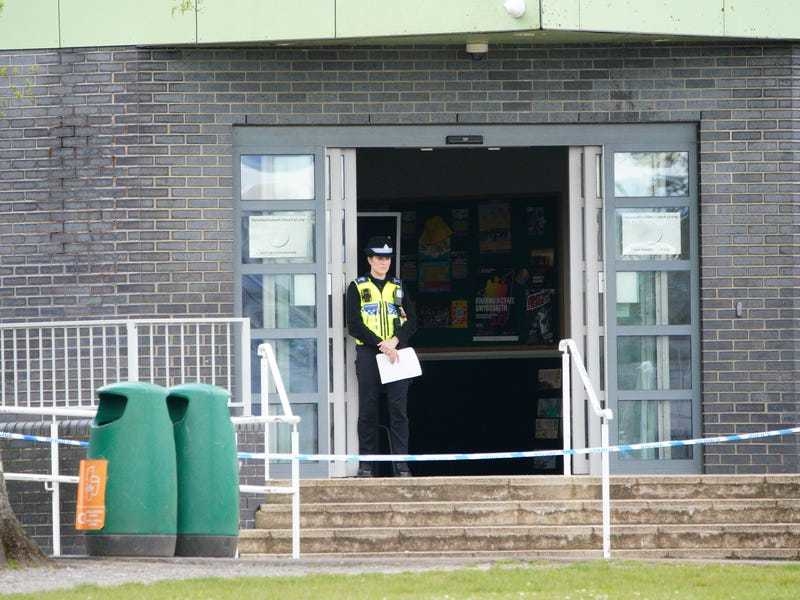The literary dame caused a stir on Merseyside not only by accusing her fellow Liverpudlians of having the most unattractive accent in the English-speaking world; she also opined that they sounded ‘common’ and ‘thick’. If Miss Bainbridge had directed her vitriol against an ethnic minority, she would have been accused of racism.
Unfortunately for the novelist, Merseysiders don’t take such criticism lying down, as Boris Johnson, the Sun newspaper and Ringo Starr have discovered to their cost. Criticise the city, its people and the way they speak and they retaliate – but with the humour that distinguishes Liverpool and makes Scousers a breed apart.
That famous wit was no better illustrated than after the former Beatles drummer poured scorn on his home town; the next day a topiary statue of the Fab Four was vandalised when Ringo’s head was chopped off.
OK, I’m slightly biased. My father was born in Liverpool (well Everton, actually), but nobody’s perfect, not even my dad. Liverpool is a great city with a big heart and in my opinion it’s one of the most lyrical and likeable accents among the English-speaking people.
To those not familiar with its nuances and peculiarities, it can be as baffling as the Scottish dialects and those peculiar to Northern Ireland, the north-east of England and the many rural heartlands of England, Scotland, Ireland and Wales.
English is a wonderful but confusing language and the international accents – let alone regional dialects – exhibit a mind-boggling degree of variation wherever it is spoken as a first language. I have found myself equally baffled on hearing my mother tongue spoken in the Yorkshire Dales, the Texas hill country, the French quarter of New Orleans and remote Australian towns as I have on Bodmin Moor, in Liverpool’s city
centre or on a night out in St Helier.
Standard, or Oxford, English is the ideal of how the language should be spoken. That underpinned the philosophy of Lord Reith, who in the early days of the BBC would employ only announcers and presenters who sounded as if they were more at home at Royal Ascot and Henley than at Aintree or in a street corner pub.
He regarded it the corporation’s duty to educate the country to follow the example of his plummy presenters.
While appreciating the high ideals of Lord Reith and Dame Beryl, oh dear, what a dull place the world would be if we all spoke the same. I may be a humble weekly columnist in a local newspaper, but I cannot understand how such a highly regarded and skilful proponent of the written word as Dame Beryl could advocate destroying the many and wonderful ways in which English is spoken the length and breadth of the British Isles.
What makes regional accents even more interesting are the many local dialects, which vary between areas, cities, towns and villages. To the non-familiar ear, everyone in Yorkshire, Suffolk and Cornwall, as examples of counties with distinctive linguistic traits, speaks in the same manner; but take time to listen hard and you’ll discover that people who live as little as five miles apart have distinct accents.
The Jersey accent has suffered from mass immigration since the end of the Occupation – and the boom in the popularity of television soaps. Nonetheless, visit a country bar or sales at Glencoe and that distinct local twang, reminiscent of a white South African accent, can still be heard from the mouths of the older generations.
Much like Scouse and other regional variations, the way English is spoken in Jersey has changed over the generations, and will continue to do so in our ever-shrinking world of instant mass communication and television schedules overburdened with imports.
On my travels far and wide, I am usually mistaken not for a South African but for an Australian – even by Australians.
Accents define our origins and only elocution lessons or vocal training can change the way we speak. What comes out when we open our mouths makes us special, which is why I am quite fond of my ‘Aussie’ lilt, because without it I would sound rather bland.
Having no discernible accent is akin to being stateless, lacking those distinguishing national characteristics or social imprinting that divides man into tribes. It is that sense of wanting to belong, to fit in, that sees those who start life afresh in a new community or country, quickly acquire the nuances of the local tongue.
It all could have been so different for Jersey if 800 years ago a gaggle of the Island’s most powerful seigneurs had not jumped ship, severing their ancestral Norman ties with France in favour of the Crown and the income and influence to be had from rich estates and feudal powers in England. It is not known if they bothered to tell the local peasants, who continued to endure their sorry lot for centuries still speaking French and trading with France.
Jersey has its own indigenous language, Jèrriais, a derivation of ancient Norman French and interestingly, quite different from the patois of Guernsey, yet equally incomprehensible to French ears. Notwithstanding a concerted effort to revive interest in the Island’s mother tongue, only three in every 100 Islanders is fluent.
Until the 1960s, Jèrriais was in common usage in all the parishes, and as with the regional variances in all languages, there were discernible linguistic differences between the languages spoken in St Ouen, St Peter and St Mary and those spoken in Grouville, St Saviour and Trinity.
The saddest downside of the Island’s post-Occupation economic success is the loss of a sense of a distinct identity and, moreover, a distinguishing accent. Rather than criticising her fellow Scousers, Beryl Bainbridge should be celebrating the rich linguistic diversity that sets them, and all the ‘tribes’ of the British people, apart not just from each other, but also from other nationalities. As the French say: ‘Vive la différence!’






